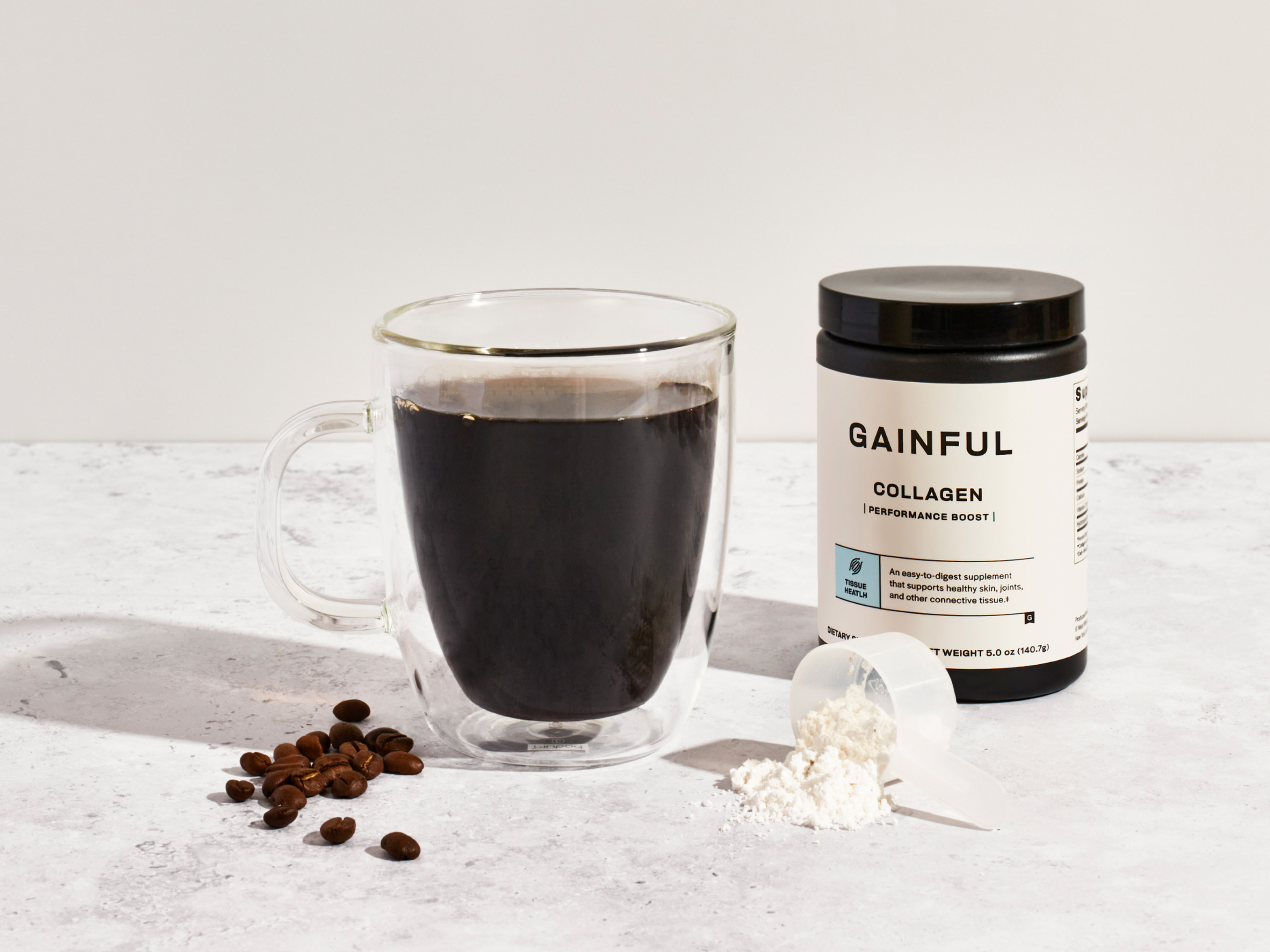Home /
The truth about Collagen & Caffeine

On the Subject of Caffeine and Collagen
It’s no secret that collagen has significant benefits for your body. Collagen is an important structural component in skin, bone, tendons and ligaments where its strength helps resist tension and tears. Supplementation with collagen can accelerate the process of recovery from the muscular damage associated with intense exercise by reducing muscle soreness which can improve sports performance.
Collagen starts declining in production around age 25, so it’s a good idea to start supplementing collagen intake to help with wellness and longevity. In addition, Gainful’s Collagen Boost includes a scientist-recommended dosage of Vitamin C, which enhances uptake and absorption of collagen into tissue. Connective tissue recovery is actually quite different from muscle tissue recovery, but both are critical for athletic performance and maintenance. Gainful’s Collagen Performance Boost supports skin, ligament and tendon recovery, as well as systemic regeneration.
One of our favorite ways to include Collagen in your daily supplement routine (and yes, daily supplementation is essential to reap the benefits) is to take it alongside your Pre-Workout around 30 minutes prior to exercise to efficiently prepare your body not just for exercise but for repair afterwards. In doing so, your Pre-Workout boosts your energy, allowing you to push harder throughout your workout, while your Collagen can immediately get to work protecting and repairing joints, muscles, and tendons.
But what if pre-workout contains caffeine, doesn’t caffeine reduce collagen production?
A study published eight years ago tested the impacts of caffeine on collagen synthesis in cell culture, and found synthesis to be significantly reduced. After this study, popular news outlets started reporting on the negative effects of coffee on collagen production, fallaciously extrapolated this to mean coffee consumption reduces collagen production in humans.
Understanding the science
The trouble is that this misses the mark–as valuable as cell culture studies are, they don’t accurately represent what happens in humans. In addition, no single study is enough to determine true outcomes, unless it can be replicated and verified. Furthermore, when replicated in animal studies, the impact of caffeine on collagen synthesis was negligible. Of course, more research needs to be done, replicated and studied in humans, but there is good reason to believe the concern regarding caffeinated beverages and collagen does not apply to human physiology.
Straight from our Registered Dietitians
All our Gainful personalized performance nutrition products are formulated based on your needs, as well as the science that verifies each of the ingredients. When building your stack, we take into account the combinations that work synergistically to ensure you’re getting the maximum benefit. Rest assured, your collagen and caffeinated products have been formulated to go hand in hand.
Dr. Dana, SAB: “Caffeine in media significantly reduced parameters of collagen synthesis, integrity etc. however scaled up to rodents there was basically no difference. Making aggressive assumptions from cell culture data is not necessarily applicable to humans.”

